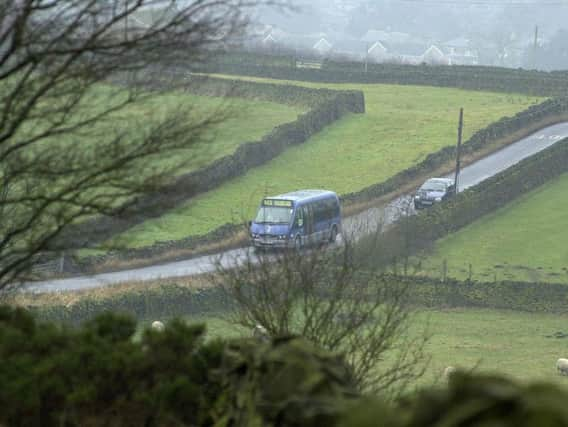Better bus services and reopening rail lines can tackle Yorkshire’s public transport deserts - Crispin Truman


But be in no doubt, we are seeing the rise of so-called ‘transport deserts’ that are stunting the potential of our countryside and the people who live in it.
When the only option for many people living in rural communities is to get around by car, which is the reality for thousands of people who live in Yorkshire, they could be living in a transport desert.
Advertisement
Hide AdAdvertisement
Hide AdThe research launched this week by CPRE, the countryside charity and the Campaign for Better Transport (CBT), is the first attempt to develop a scoring system to rank the public transport options that are available to rural communities.
The extremities of a desert make for an unfortunate but apt way to describe the findings – funding cuts to rural transport have left many countryside communities high and dry.
Our research has found that nearly one million people living in the south west and north east of England are living in transport deserts or areas at risk of becoming one.
Advertisement
Hide AdAdvertisement
Hide AdIf we widened the scope of this study, we would expect to see that many more millions of people in towns and the surrounding villages, across the country, are living in areas that are equally poorly served by public transport links.
If you’re thinking of visiting or moving to a small town the first question is often: how am I going to get around?
Two-thirds of the towns we looked at had no train station connecting them to the national rail network: meanwhile, CBT figures show that more than £29 million has been cut from local authority bus services across Yorkshire and the Humber.
At CPRE, the countryside charity, we want rural communities to thrive so that everyone can enjoy the benefits of the countryside.
Advertisement
Hide AdAdvertisement
Hide AdEnsuring that our towns and villages are well connected in terms of transport links is a central part of this vision.
And the benefits are clear.
With a better public transport system, we could see local shops and high streets regenerate as people become less reliant on online shopping.
A network of bus routes providing access to key services for smaller rural settlements would ensure that people of all ages and backgrounds can continue to live in the countryside, protecting their way of life.
Vitally, we also believe that better public transport in rural areas has a huge role to play in reducing the UK’s pollution and carbon emissions.
Advertisement
Hide AdAdvertisement
Hide AdThat’s why the Government’s announcement for £5 billion into buses is welcome news but needs to go further for rural communities to ensure they receive their fair share of the funding that is now available.
This could be achieved by setting an ambitious target for the number of people living within walking distance of a regularly served bus stop in the upcoming National Bus Strategy.
The Government has pledged that its new strategy will “focus on the needs of passengers so that more people want to use the bus, and set out how national and local government and the private sector will come together to meet the needs of local communities”.
It has also promised “long-term funding commitment” for buses to run alongside the new strategy.
Advertisement
Hide AdAdvertisement
Hide AdThe long-term funding package will be announced as part of the 2020 spending review and is promising, among other things, to set out the Government’s plans to support local authorities which want to pursue London-style bus systems in their areas.
But it’s not all about the bus.
A range of public transport options will be essential to keep traffic off the road and carbon emissions out of the atmosphere.
In the face of the climate emergency, we cannot allow emissions from transport - the largest contributor to climate change in this country - to go on rising.
A genuinely ambitious programme of rail reopenings connecting rural communities with the rail network will be central in creating the low carbon and connected countryside many millions are asking for.
That is the reason why we need a Rural Transport Fund that provides better transport links for all of our rural communities.
Crispin Truman is chief executive of CPRE, the countryside charity.